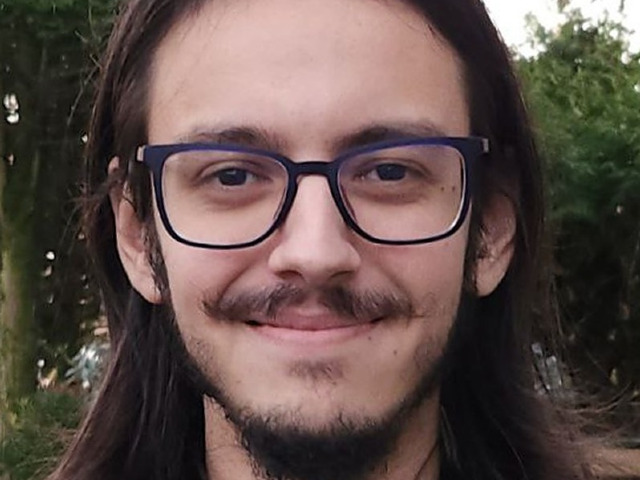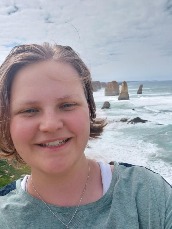Speech Technology students talk about their favourite courses

What courses do you take as a Speech Technology student? What is a really fun project? Dragoș, Floor and Hubert talk about their favourite courses, what they learned from them and how they apply the knowledge they learned in their everyday life.
Dragoș: I would say my favourite course is Speech Sounds, from term 1a. The course content covers basic concepts of phonetics, phonology, and linguistics, enough for us to have some idea about how speech is produced and how it can be processed. I come from a Computer Science background, so when I heard that we will be having this course, I was a bit scared (since it is more of a linguistics type of course) but also curious to see how it is. In the end, I really loved it due to the amount of new and interesting stuff I learned, as well as the interactivity and energy that dr. Vass Verkhodanova, the lecturer, brought the entire course. We had fun practicals, such as listening to sounds that are coarticulated, to literally marking the inside of our mouths with ink to illustrate how the mouth moves around when making certain sounds.
We learned about how vowels and consonants sound and how the mouth must be placed in order to make them, how words can sound different based on the context, and how there is a wide variety of sounds, but there is no language that makes use of all of them, as well as stuff related to intonation and tones, such as what Mandarin or Vietnamese use. I sometimes reflect on the sounds I make when speaking and realize just how accented my speech is, since I am not a native English speaker. It is for sure very useful for what I do in order to understand the older models and algorithms that people invented in the second half of the 20th century, which were very much based on how we produce sounds and the physics behind it sometimes and less about what neural network model to use, as is the case nowadays.

Floor: My favourite course so far was also Speech Sounds. In this class, we learnt all about the different sounds that make up a language, how those are made and what we can do with that information in regards to Speech Tech. What we learnt in this course, keeps being relevant for our other courses as well. As one of the linguists in the group, who were already familiar with most of the topics, I was impressed with how much information was packed in only one block and how clearly it was taught. As a final project, we did a tiny research project in groups on the influences of caffeine, alcohol and whispering on speech. Doing and presenting this to each other was a lot of fun. In a group as international as ours, it’s a lot of fun to be able to talk about the exact difference in our accents, something we still do every day.

Hubert: Coming into the program, I was somewhat apprehensive. While I had previous experience in some aspects, such as the basics of programming, I had absolutely no prior experience in others; particularly linguistics. I was assured, however, that the Speech Technology programme ensures that everyone gets up to speed in all the relevant fields before one ventures into the wilderness of research. Fair enough, I thought.
The course tasked with getting the non-linguists up to speed was Speech Sounds. Naturally, I came into it with a bit of a sense of dread; how could I will possibly be brought up to anywhere near the same level as linguistics graduates within the span of a block? I was greeted into the course by what struck me as a very warm welcome, arriving to receive what can be described as a starter pack of sorts. A sweet snack for a quick energy boost, a little sticker, and an IPA table. That was rather nice. I couldn't help but fiddle with the IPA table and look at what is the equivalent of the periodic table to chemistry; the divine diagram of the field in a sense. I felt slightly overwhelmed with how much stuff there was on it. Diacritics? Alveolo-palatal fricatives? Like 10 different tones; whatever those were? Over 20 vowels arranged in this weird triangle-shaped thing? It seemed a lot to take in, and the prospect of being on top of it all within the span of 9 weeks seemed daunting.
However, contrary to my initial assumptions, the journey through the course was smooth sailing, and very enjoyable. Now by no means would I claim to be an expert on linguistics in any way, but I am for sure more comfortable with it, at least enough to apply it in a Speech Technology context. The course went through the 101 of linguistics, how to transcribe different languages to a common system, how to tell apart what constitutes a different sound in different languages, vowels and consonants, how different sounds influence and impact each other, how we perceive these sounds and the different conditions that affect the way we either produce, hear and interpret speech. Naturally, the course does a lot more than that, but these are the essentials in my view. I liked the course on account of how open-ended it was to input from different backgrounds. You'd frequently hear examples from all sorts of languages which had their unique sounds. You could really appreciate just how versatile the human speech system is, and how creatively it is used by different cultures. I find myself being really attentive to these little quirks of speech, particularly when listening to synthetic speech. Currently, in Speech Technology, there is a constant strife to make it better, make it sound more "natural"; and it's the small details which determine whether a voice sounds natural to us as opposed to having a kind of robotic, uncanny valley feel to it.
In short, I would say this was my favourite course as it opened up what was a foreign discipline to me in a welcoming and energetic environment, where I really got to play around with the various aspects which make it such an interesting field.

